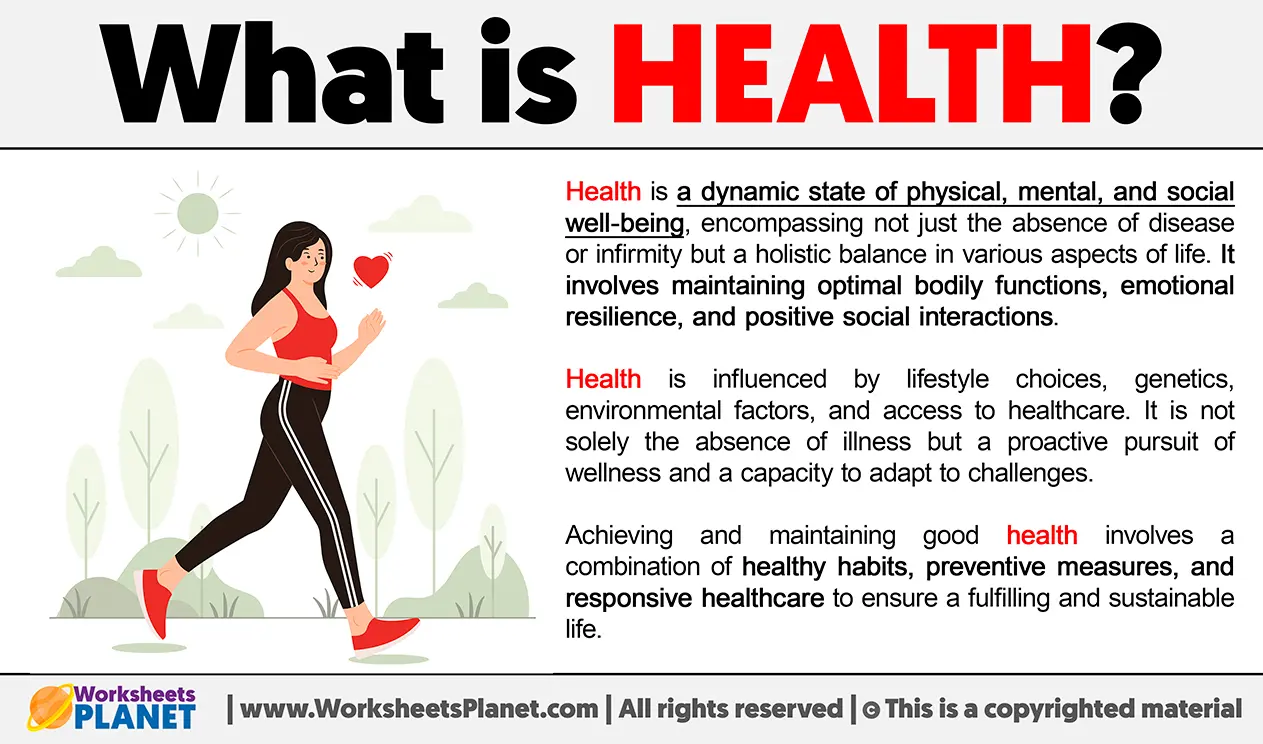Health is something everyone cares about, but most people don’t really know how doctors, scientists, and health experts work together to protect it. This is where health science comes in. If you want to understand what is health science in the easiest way, think of it as the study of how to keep people healthy and how to treat them when they get sick.
Health science includes everything from learning how the human body works to finding new ways to prevent diseases. It combines subjects like biology, medicine, public health, nutrition, and healthcare management. According to the U.S. Bureau of Labor Statistics, jobs in health-related fields are expected to grow by over 10% by 2031, which shows that this field is becoming even more important.
➡️ Health science is the study of health, diseases, and the best ways to care for people.
It focuses on:
- Understanding how the body works
- Preventing illnesses
- Teaching people how to live healthier lives
- Improving hospitals and healthcare systems
- Using new technology to diagnose and treat diseases
For example, health science helps create vaccines, health awareness programs, safe surgery methods, and better treatments for conditions like diabetes, heart disease, and infections.
The World Health Organization says that most improvements in global health since the 1990s have come from better scientific research and healthcare practices. That is exactly what health science is all about.
One of the biggest benefits of health science is disease prevention. It helps people avoid getting sick in the first place.
Health science does this by:
- Creating screening tests (like cancer or diabetes tests)
- Designing vaccination programs
- Teaching people about healthy habits
- Studying how diseases spread
For example:
- The CDC reports that early detection can increase cancer survival rates by up to 90%.
- Health scientists helped reduce global polio cases by over 99% since 1988.
This shows how powerful health science is in keeping communities safe and healthy.
Technology has become an important part of health science. It helps doctors diagnose diseases faster and treat patients more safely.
Some examples include:
- Telehealth (online doctor visits)
- Wearable devices (step counters, heart monitors)
- AI tools that help detect diseases
- Robotic surgeries that reduce pain and recovery time
- Genetic testing to detect inherited diseases
During the COVID-19 pandemic, telehealth use increased by over 6,000%, showing how technology can help people get medical care from home.
These tools make healthcare more accurate, faster, and more accessible for everyone.
Public health is a big part of what is health science. It focuses on keeping entire communities safe.
This includes:
- Clean water and sanitation
- Health education
- Childhood vaccinations
- Nutrition programs
- Control of infectious diseases
- Environmental safety
Because of health science and public health programs, global life expectancy has increased by over 20 years in the last century.
Public health experts work behind the scenes to prevent disease outbreaks, reduce pollution, improve food safety, and create health policies that protect millions of people.
Health science is not just about the body. It also focuses on mental and emotional well-being.
Researchers study how stress, anxiety, depression, and other mental health issues affect people. They also create treatments and support programs to help people cope better.
Some benefits of mental health science include:
- Better therapy methods
- Early diagnosis of mental conditions
- Stress management strategies
- Community mental health centers
- Online counseling platforms
According to NAMI, 1 in 5 adults faces a mental health challenge each year. Health science helps make sure they receive proper treatment and support.
When learning what is health science, many people also ask about careers in this field. Health science offers a large number of job opportunities, both clinical (hospital-based) and non-clinical.
Some common careers include:
- Nurses
- Lab technologists
- Public health workers
- Nutritionists
- Physical therapists
- Healthcare administrators
- Epidemiologists
- Health educators
- Medical researchers
The health sector is expected to add over 2 million new jobs by 2031. These professionals work every day to help patients recover, prevent diseases, support healthy lifestyles, and improve healthcare systems.
Health science is the study of the human body, diseases, and all the ways to keep people healthy.
It helps prevent illnesses, improves treatments, develops better healthcare technology, and supports mental wellbeing.
No. Many health science careers do not require being a doctor. You can work in public health, nutrition, therapy, labs, administration, and more.
Biology, anatomy, public health, psychology, nutrition, and healthcare management.
Yes. It helps fight diseases, manage global health problems, and improves the quality of life for individuals and communities.
for more click here to know expert geyser to keep your water heating system
- World Health Organization (WHO)
- CDC – Centers for Disease Control and Prevention
- NIH – National Institutes of Health
- U.S. Bureau of Labor Statistics
- National Alliance on Mental Illness (NAMI)

